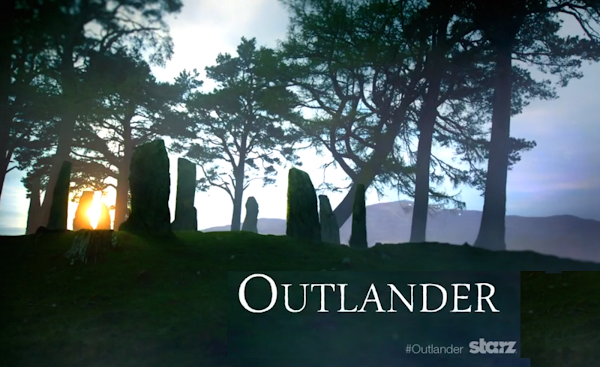More on the fan-fiction controversy
A "real" character--the ones written with sufficient vividness as to engage someone to a degree to want to do this in the first place--is not just a construct made by the writer: she/he _is_ the writer, refracted through the lens of that writer's experience, craft, and personality. You (a fan-fiction writer, I mean) might well have sufficient craft to build a character, but that _would_ be a construct, and not a real character.On the subject of dialogue in fan-fiction, she had this to say:
That's one of the things that I find so upsetting about reading fan-fiction involving my characters: the constant feeling of "He'd never _say_ that!" or "Good grief, how could you possibly put words like _that_ in her mouth!" It's violation of who I know these people to be, while claiming to be an accurate depiction of them--very rough cognitive dissonance. That dissonance might be less for casual readers, but it's there.Some people commenting on this controversy have said that an author's characters are, in some sense, like her children. I thought Diana's response to that was interesting:
My characters are not my children--my characters are _me_. Not just Claire, not just Jamie--all of them (including Black Jack Randall and Stephen Bonnet. You might want to keep that in mind. <g>). They continue to be me when written on the page. You know this, if you read at all--if a writer is halfway honest in what he or she does, the reader _knows_ that writer, in varying degrees, some conscious, some visceral. When you mess with my people, you aren't messing with something I _made_--you're messing with me.
Related posts:
Fan-fiction and copyright
Fan-fiction and copyright: Diana's response
Diana Gabaldon's official fan-fiction policy
An apology from Diana
One final comment about fan-fiction







Amy in Atlanta
Thanks for the kind words! And for what it's worth, I agree with you.
Karen
Thank you for the update.
Sandra (not the one posting over on Diana's blog)
Even though I feel Diana went overboard in stating her case initally about fan fic, I do agree that is she doesn't like it, then fans should comply with that and stop arguing with her about it. However, I am somewhat confused about something that may have been addressed elsewhere, so forgive me if this is repetitive. I have gotten the impression that (and maybe this is a wrong impression) that her biggest problem with fan fic is how her characters are treated, or mistreated may be a more apt description. The quote where Diana says her characters are not like her children, but are her, all of them, and if you mess with her characters you are messing with her. That actually makes sense to me and is more honest than those authors who do use the child analogy.
My confusion comes about because of the fact that Diana has, in the past, sold the rights for a movie to be made. I have read comments she has made about this. Basically she sold the rights after liking what she heard from the movie maker, but that she has no desire to be involved, if asked, in the process if it should ever happen.
Every movie adaptation or TV series I have ever seen from a book (with the exception of To Kill a Mockingbird and Harry Potter and many would not agree with me about HP) has never lived up to the quality of the book. Even I know that movie making is a different animal altogether than authoring a book and corners are cut for various reasons, usually financial. Considering how passionate Diana is about her characters, it seems as if she were taking a big chance on how her characters (herself) would be handled.
My confusion is I don't see all that much difference between the fan fic and the movie people, other than the exchange of money and the fact that Diana gave her consent contractually to have her work made into a movie. But, if her main concern is how her characters are treated, then why do that at all? I have heard other authors talk about this that have had their work show up on the screen and they basically say the same thing. They have little to no control once they sell the rights.
Contrast that with the upcoming graphic novel, THE EXILE, where Diana wrote the script and worked very closely with the artist to make sure the characters are as close as possible to her mental image of them. We'll see in September how close we think she came to our own images of Jamie, Claire, et al. But the point is, that story is entirely within Diana's control. You are right that the movie screenplay is not.
Karen
A good question, but still moot. Diana's point is with the books, because there the characters develop.
When you move them to a movie, it is already a different thing. You can't have a deal with the industry to control the characters, because they want to make the movie to fulfill the needs of the audience. So it will highlight in a 'right' way the main themes and as with the abridged books, the scenes has to be bridged together.
And of course during these bridging there can/will be 'novell' story telling that makes me closing my eyes with unhappy goose bumps in my arms while watching the movie.
And I am afraid that if she would be this screen writer, Book Eight would be delayed and character development stalled. And I rather wait longer for the perhaps not so good movie than postpone Book Eight a single month longer than is necessary.
I have THE EXILE on preorder. It will be the first time I have bought a GN and I totally give Diana credit for that. But, as pointed out, she had total control of the story and worked with the artist to get things right as much as possible given the medium she was working with. I have lurked on Compuserv and seen her response to a few who didn't like her doing a GN. I thought her reasons were very valid, especially hoping it would bring a different demographic to her books (at least that was the way I interpreted it, if I'm wrong please correct me). But it was also refreshing and totally understandable to see her acknowledge that she wants the business it brings so.
Which brings me back to my original point. I also think it would be great to be able to see her work brought to the screen and understand her being willing to sell the rights. But, the end result could be the same as what she has been unhappy about with fan fic. Different mediums, same result.
Not that Diana is asking me :D, but I would rather she wait until the book series is over to make a deal about a movie or series. Hopefully she will then have the time to be an integral part of the process, preferably as the screenwriter. That way she could make sure that what she doesn't to happen in fan fic also doesn't happen on the screen.